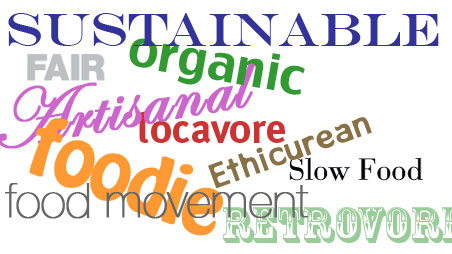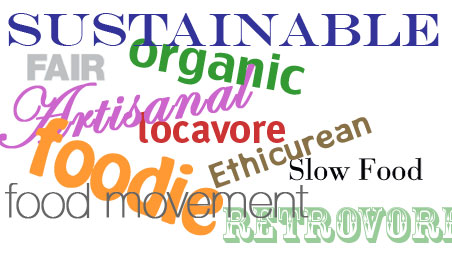 When you find me behind bars, locked up for a fit of lexical rage, please know that it was granola that pushed me over the edge. Not just any granola: “artisan granola.”
When you find me behind bars, locked up for a fit of lexical rage, please know that it was granola that pushed me over the edge. Not just any granola: “artisan granola.”
Presumably its makers meant artisanal granola, made in limited quantities using traditional methods, rather than crunchy-buttery-nutty snacks for a hungry craftsperson. Whatever. It’s granola! It started out in the 19th century as health food for sick people. There is no long tradition of baked rolled oats that’s been passed down through generations. And even if there were, grandma wouldn’t be dropping her breakfast mix into a factory-sealed plastic bag stamped with nutritional information.
“Artisanal” once described something meaningful, honoring the labor of people who make things very skillfully, with their hands. I think it came into vogue a few years ago, with the charcuterie and cheese businesses, and it makes sense in those contexts. Techniques of preserving meat and dairy without refrigeration and without killing ourselves really have been passed down through countless centuries.
Then along came artisanal pasta. OK, I can handle that. If you’ve ever had pasta made by hand, with fresh eggs, it’s not just artisanal, it’s aphrodisiacal. Of course, soon pasta that was just mixed and dried in small factories acquired the label.
By now, it’s just an emptied-out, hollow marketing term, like “fresh.” And things have gotten absurd. Artisanal popcorn? (It happens to be sublime popcorn, but not because of its long, well-crafted heritage.) Artisan Jello. Artisan-style peanut butter.
And — drum roll, please — ArtisanTM dog food.
Make it stop!
We in the food movement have a problem, starting with “food movement.” Alone, it sounds … intestinal. But all the modifying adjectives are either too vague or already co-opted. First of all, what’s this “movement” about: Slow Food? SOLE food? Real food — brought to you by Hellman’s? Good food? Clean and fair food? All of the above?
And who is this “we,” really? Please, don’t say “foodies.” First of all, it sounds like baby talk: Does my liddle foodie-woodie want some artisanal-wizzanal Twinkie-winkies? Second, most of America loves to hate people who won’t shut up about their elite, snobby food, so much so that a new term has been coined, reports Chow: foochebags.
“Locavore” is good, but too narrow. I prefer “Ethicurean,” but four years after I and some friends came up with it, it has yet to catch on. Meanwhile, “conscientious eater” doesn’t exactly roll off the tongue.
So, for lack of a better term, this loose, wide-ranging coalition usually gets called the sustainable food movement. But “sustainable” is another word like “artisanal” — everybody’s using it; few have a clue what it should mean. (I once spent way too many words talking about that here.) Just as with artisanal, there’s money to be made in redefining and qualifying it. Walmart is working on a Sustainable Product Index. Meanwhile, a diverse group of farmers, industry, and activists are trying to codify some standards for “sustainable agriculture,” but advocates of genetically engineered crops have just walked out because they weren’t getting enough respect.
That’s fine. Patented seeds are to “sustainable” what factory-manufactured granola is to “artisanal.”
This movement desperately needs some fresh new language. Last week, Grist’s David Roberts asked readers “What should we call people who care about climate change and clean energy?” The result — “climate hawks” — is pure framing genius.
Alas, “food hawks” won’t fly. So, I’m asking all you smart readers: What should we call people who care about making the food system healthier (for eaters, farmers, farm animals, and the environment), fairer (for workers), and sustainable (as in, less dependent on limited resources)?
Help me out here. In the meantime, I’m going to mix myself an artisanal cocktail.



